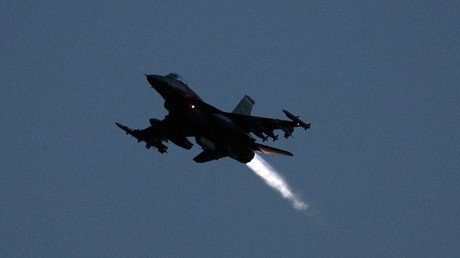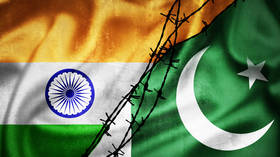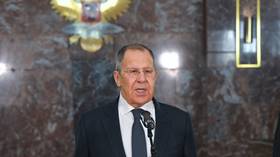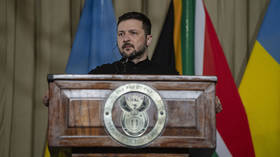UN blames US, EU sanctions for punishing Syrian civilians, stalling aid work – leaked report
US and EU sanctions against Syria are punishing the population and make aid work in the war-torn country almost impossible, a leaked UN report and internal letters have revealed.
The restrictive measures contributed to the destabilization of every sector of the economy in Syria that used to be self-sufficient before the war began in 2011.
The country now heavily depends on aid, which is hard to deliver as sanctions make medicine, food, fuel, spare parts and other essentials unreachable, a 40-page UN report, cited by The Intercept, stressed.
The paper entitled ‘Humanitarian Impact of Syria-Related Unilateral Restrictive Measures’ was published in mid-May, but The Intercept got hold of it now, adding other materials on the issue.
The report blasted US and EU restrictions as “some of the most complicated and far-reaching sanctions regimes ever imposed.”
According to the UN, the sanctions introduced by Washington are extremely harsh regarding provision of humanitarian aid. The American restrictions made money transfers into Syria almost impossible, preventing aid groups from paying salaries and purchasing supplies “in both government and besieged areas,” the report said. It stimulated the creation of a shady, unofficial network of money exchange, which is actively being used by Islamic State (IS, formerly ISIS/ISIL) and Jabhat al-Nusra terrorists.
The trade restrictions ban the export to Syria of all goods, containing at least 10 percent of US-made content. This puts the aid groups in a difficult situation as, in order to transfer specific items, they are forced to apply for a special license, which is very hard to obtain due to bureaucratic barriers, according to the report.
An internal UN email, also obtained by The Intercept, blamed the US and EU restrictions for food shortages in the country.
Wheat production has dropped 40 percent in the country since 2010, making the price of wheat flour to increase by 300 percent and rice – by 650 percent. An August letter from “a key UN official” also said that the restrictions were a “principal factor” in the crippling of the Syrian health care.
The medication factories, which weren’t destroyed during the hostilities, still had to close due to absence of raw materials and foreign currency caused by the sanction, the official wrote.
READ MORE: US ‘spare Nusra for plan B’ to change regime in Syria – Lavrov
The Intercept contacted the US State Department on the issue, which refused to acknowledge any of the claims or that the sanctions are hurting civilians in Syria.
“US sanctions against [Syrian President Bashar] Assad, his backers, and the regime deprive these actors of resources that could be used to further the bloody campaign Assad continues to wage against his own people,” the State Department said in emailed response.
“The true responsibility for the dire humanitarian situation lies squarely with Assad, who has repeatedly denied access and attacked aid workers. He has the ability to relieve this suffering at any time, should he meet his commitment to provide full, sustained access for delivery of humanitarian assistance in areas that the U.N. has determined need it,” the email added.
READ MORE: ISIS & Al-Nusra not in Damascus: Kremlin on major outcome of Russia’s campaign in Syria
Sanctions have been gradually introduced against Syria since 1979 when Washington labeled the country sponsor of terrorism. But the harshest restrictions came in 2011 when the uprising and military conflict in the country started.














